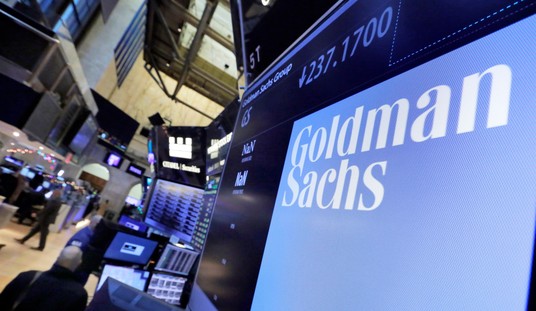Over the past few months, the Senate Armed Services Committee has listened to the moribund news that recruitment for the military is at an all-time low. Despite this grim forecast, the Command Sergeant Major for Minnesota National Guard Recruitment told CBS News that he was still confident that he could find recruits:
“The more people that we can show what we do and what we’re about, the more people are going to take interest,” Command Sgt. Maj. Shawn Kor, of the Minnesota National Guard’s Recruitment and Retention Battalion, explained to WCCO. “Minnesota is a great state and Minnesotans are proud people and we offer them a way to give back to Minnesota and their country.”
Yeah, about that showing “what we do and what we’re about” part. The Washington Free Beacon discovered what the real recruitment goals are for the Minnesota National Guard:
The Minnesota Army National Guard paid tens of thousands of dollars to advertise in an LGBT publication that has promoted transgenderism and “queer” identities among children.
The National Guard, which operates through the Department of Defense, between 2019 and 2022 awarded $76,951 to Minneapolis-based Lavender magazine, paying for advertising campaigns in an effort to “reach the LGBTQ community” and “lend credibility to the National Guard.” Between May 2021 and May 2022 alone, it paid $22,224 to the LGBT magazine, according to a federal government contract disclosure. The advertising campaign appears to be related to the Minnesota National Guard’s “LGBT Special Emphasis Council.”
That’s a lot of money dumped into advertisement to one specific group. They may as well have lit it on fire, because frankly, it’s already failed on the credibility front. While the LGBTQ Plus, Plus, Plus community might feel that the Minnesota National Guard has more credence, among the caliber of people who the military would normally attract, it is clear the National Guard — and the entire military apparatus — has already lost credibility. Otherwise, why would they be having recruitment problems?
Command Sgt. Maj. Kor waxed eloquent about his recruitment goals to CBS News, apparently thinking that the advertising campaign would work magic. But the type of young men and women who are built for the military have no interest in diversity or inclusion, among the other vaccine restrictions and WOKE nonsense the military is now peddling.
“Be All That You Can Be,” and “Army Strong,” has sadly devolved into “What’s Your Pronoun?” and “Gender Flexible, Guns Optional.”
Masks. Shot mandates. Woke ideology. America Last.
There's a reason our military is now struggling to meet its recruiting goals.
18-year-old kids don't want to sign up and be a part of that insanity.
These people are destroying our military. It'll end up destroying America.
— Matthew H (@MattH_4America) July 23, 2022
If the military keeps this up, they won’t only have a recruitment problem, but a readiness one.
Maybe that’s a part of the plan.
My colleague Jeff Charles also covered this issue with the military and he had this to say:
The author spoke with several members of the Armed Forces and other experts who laid out the problems they are facing when it comes to attracting new soldiers. Retired Army Lt. Gen. Thomas Spoehr, who heads the Heritage Foundation’s Center for National Defense, told the news outlet that he believes this is a “systemic, long-term recruiting drought that is not going to ameliorate anytime soon.”He added: “People I talk to say this year is bad, 2023 is going to be worse, and there’s no saying that 2024 is not going to be worse still.”
And colleague Buzz Patterson wrote this a few weeks ago:
Who wants to serve in a military that prioritizes purely political agendas over patriotism, success, and selfless service? Who wants to serve senior leaders who don’t understand or embrace the traditional meritocracy of the world’s once greatest military force? Apparently, not many.
Nope. During the Senate Committee hearings, while the military heads of the Army, the Navy, the Air Force, and even the Marines weaved a song and dance about obesity, drug use, criminal history, and other physical problems among 16-21-year-olds which makes them unfit for military service, it doesn’t account for the fact that when asked in a Department of Defense poll: “How likely is it you will serve in the military?” only 11 percent responded in the affirmative.
Even among multi-generational military families, what used to be a calling to keep that lineage going is now being abandoned. The military their fathers and grandfathers signed up for is not the military that now exists.
So, I think among the 16-21-year-olds who would qualify for the military, there’s a bigger problem. Young people are looking for a sense of purpose and meaning. The military used to stand for something. It used to be a sacrifice and an exclusive brother and sisterhood. The minute your purpose becomes inclusion of anyone who feels like they want to play soldier, and pronoun adherence, you’ve kind of lost the argument. The military is no longer something special; if anything, it has lost its distinctiveness.














Join the conversation as a VIP Member